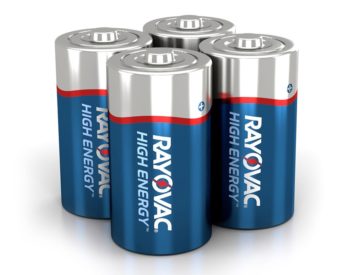The Situation
China was no longer the low-cost manufacturing environment that Spectrum Brands Holdings (NYSE: SPB) had sought for producing its Rayovac® batteries. The global consumer products company knew it needed a market exit strategy, but the cost to exit seemed nearly as unsustainable as continuing operations in China.
In 2004, Spectrum had acquired a wholly-owned facility in Ninghai municipality, Zhejiang province in the Yangtze River Delta area of central China, to manufacture its Rayovac® and Varta® alkaline batteries. However, by the late 2000s the combination of higher manufacturing costs in China and shipping costs to North America had proven cost-prohibitive.
The company decided to close the facility in Ningbo and relocate manufacturing back to the United States. However, during the closure process, Spectrum management discovered it was significantly more complex to close a company in China than to start one.
The Project
Spectrum Brands commissioned Tractus Asia to develop its market exit strategy. The first step was a corporate secretarial audit to confirm whether Spectrum had in its possession the more than 20 different types of approvals and permits required to own land, build, and use a manufacturing facility and operate in China. Without these documents, the company would not be able to dispose of its real estate assets in the Ninghai EDZ. The audit revealed that several of the permits and licenses were missing and the company needed to reapply for some and request copies for others.
Next, Tractus Asia conducted a benchmark study on the local real estate market and undertook a valuation of the facility using a combination of methods, including discounted cash flow, sales comparables, and market approaches.
“As is so often the case, the project evolved in complexity and scope over time,” shares John Beattie, VP-Treasurer, Spectrum Brands. In this case, the EDZ valued the land more highly than any private buyer, making it near-impossible to attract expanding industrial companies for a satisfactory sale.
The Solution
To dispose of Spectrum’s real estate and facility assets in a more tax effective manner, Tractus Asia structured the sale as an equity transaction. This allowed the firm to not only dispose of the asset but also the corporate entity, consolidating a time-consuming and costly liquidation process into a single transaction. While obstacles arose throughout the process—a typical part of many real estate disposals in China—Tractus Asia persisted in closing the deal to Spectrum Brands’ satisfaction.
“Throughout the lengthy process, Tractus demonstrated perseverance, flexibility, and nuanced skills to match the ongoing challenge,” Beattie says. “I can say without reservation that without their resources, the project would never have succeeded.”
Services at a Glance
Tractus Asia supported its client in disposing of a 30,000 m2 facility, 50,000 m2 of land and its corporate entity through an off-shore equity transaction. Services included:
- A corporate secretarial audit to confirm possession of more than 20 different types of approvals and permits required to own land and operate a facility in China
- Benchmark study on local real estate market
- Valuation of a facility using discounted cash flow, sales comparable and market approaches
- Identifying and approaching potential industrial buyers
- Structuring the off-shore equity transaction to ensure a tax-effective disposition of real estate assets
